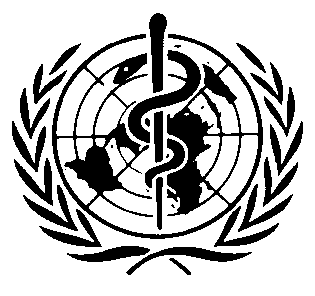International Chemical Safety Cards
| BARIUM CHLORIDE, DIHYDRATE | ICSC: 0615 |




Molecular mass: 244.3 
 ICSC # 0615
ICSC # 0615CAS # 10326-27-9 RTECS # CQ8751000 UN # 1564 EC # 056-002-00-7 October 19, 1999 Peer reviewed |
| TYPES OF HAZARD/ EXPOSURE | ACUTE HAZARDS/ SYMPTOMS | PREVENTION |
FIRST AID/ FIRE FIGHTING |
| FIRE |
Not combustible.
Gives off irritating or toxic fumes (or gases) in a fire.
|
|
In case of fire in the surroundings: all extinguishing agents allowed.
|
| EXPLOSION |
|
|
|
| EXPOSURE |
|
PREVENT DISPERSION OF DUST!
STRICT HYGIENE!
|
|
| •INHALATION |
Cough.
Sore throat.
(See Ingestion).
|
Ventilation (not if powder), local exhaust, or breathing protection.
|
Fresh air, rest.
Artificial respiration if indicated.
Refer for medical attention.
|
| •SKIN |
Redness.
|
Protective gloves.
|
Remove contaminated clothes.
Rinse skin with plenty of water or shower.
|
| •EYES |
Redness.
|
Safety spectacles,
or eye protection in combination with breathing protection.
|
First rinse with plenty of water for several minutes (remove contact lenses if easily possible), then take to a doctor.
|
| •INGESTION |
Abdominal pain.
Nausea.
Diarrhoea.
Vomiting.
Weakness.
Dullness.
Unconsciousness.
|
Do not eat, drink, or smoke during work.
|
Rinse mouth.
Induce vomiting (ONLY IN CONSCIOUS PERSONS!).
Rest.
|
| SPILLAGE DISPOSAL | STORAGE | PACKAGING & LABELLING | ||
|
Sweep spilled substance into sealable containers; if appropriate, moisten first to prevent dusting.
Carefully collect remainder,
then remove to safe place.
Do NOT let this chemical enter the environment.
(Extra personal protection: P2 filter respirator for harmful particles).
|
Separated from
food and feedstuffs
.
|
Do not transport with food and feedstuffs.
Note: A Xn symbol R: 20/22 S: 2-28 UN Hazard Class: 6.1 UN Packing Group: III |
||
| SEE IMPORTANT INFORMATION ON BACK | ||||
|
||||
